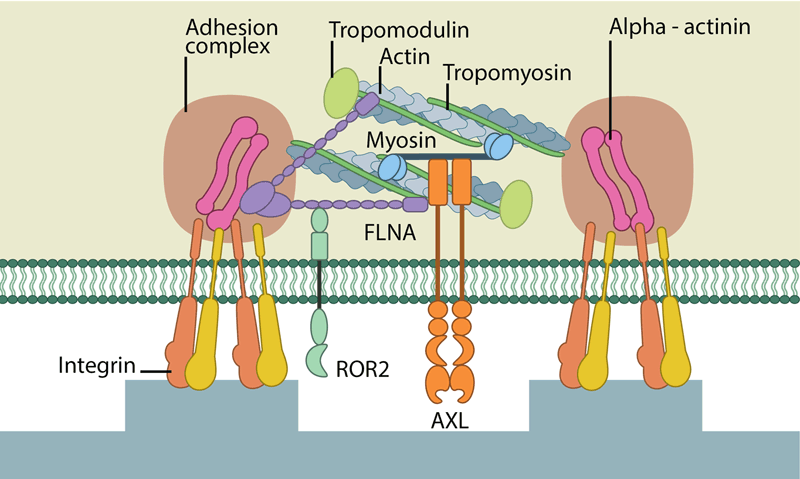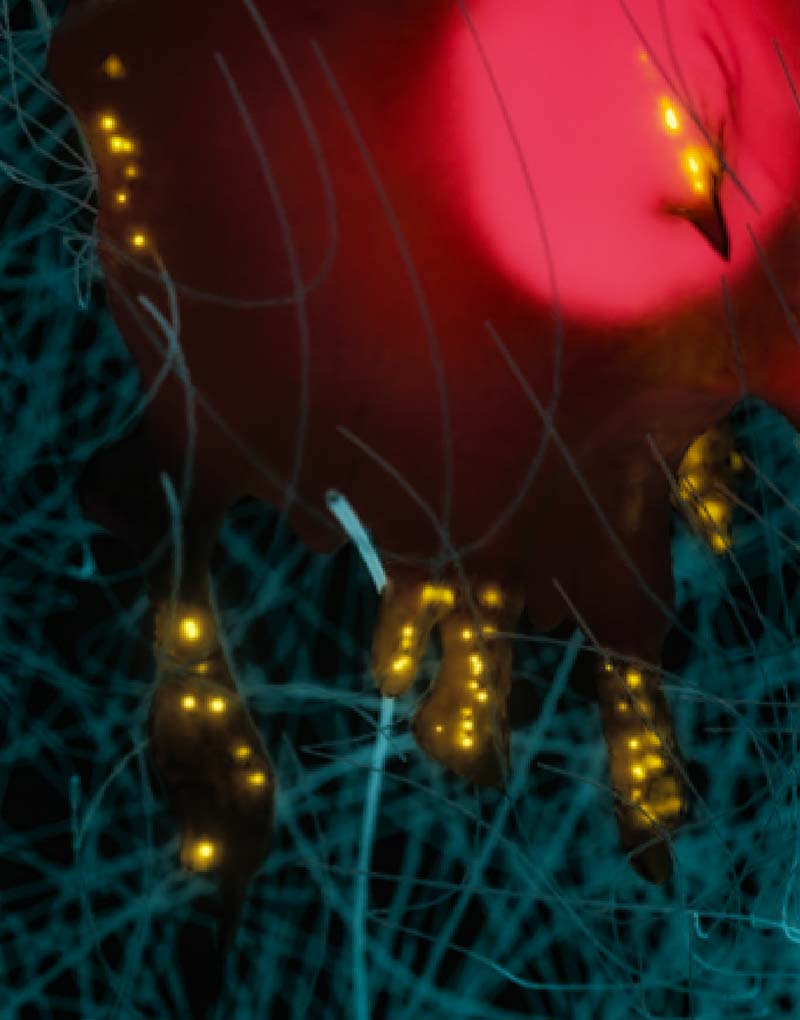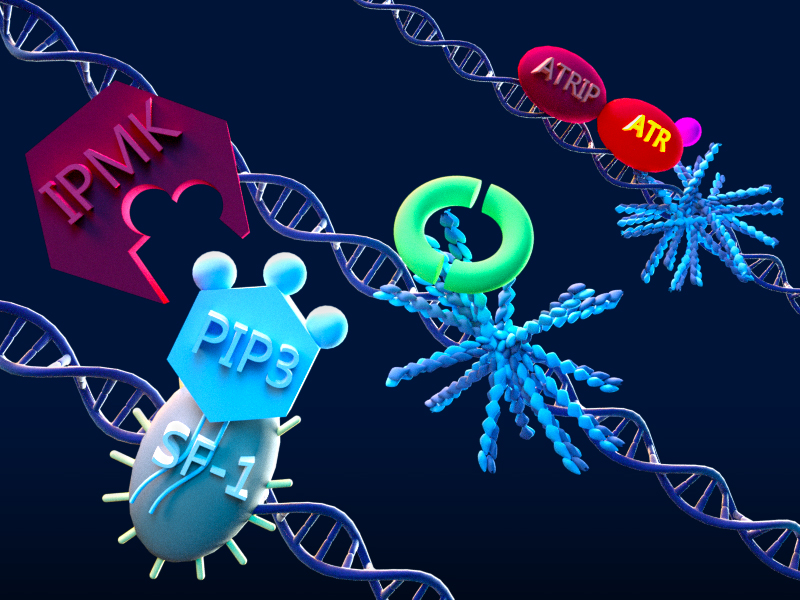Decisions in a Pinch
Steven Wolf and Sruthi Jagannathan | August 2016
Researchers at the Mechanobiology Institute (MBI), National University of Singapore have identified a role of receptor tyrosine kinases in the regulation of the cellular mechanosensory machinery, which has relevance for understanding the basis of cancerous growth and developmental abnormalities. This work was published in Nano Letters [Bo Y et al, Mechanosensing Controlled Directly by Receptor Tyrosine Kinases, Nano Letters DOI: 10.1021/acs.nanolett.6b02995)].
Receptor Tyrosince Kinases control mechanosensors
Cells live in different micro-environments within the human body. Each of these micro-environments vary in their stiffness, from soft (like blood) to hard (like bone). Cells have the ability to sense and react to different rigidities. For a tissue to develop properly, the cells within it must respond correctly to various stimuli, including the information from their physical surroundings.
When the ‘on or off’ signals are generated incorrectly, the cellular machinery will operate in an inappropriate manner, and this can lead to the onset of various diseases. Cancer in particular is associated with a loss of regulation, and the mis-control of mechanosensory, motility, and growth programmes. The ultimate result here, is that the cells ignore their micro-environment’s rigidity, break free of their surrounding tissue, invade the bloodstream, establish themselves in otherwise foreign regions of the body, and begin to grow uncontrollably.
Controlling the mechanosensory machines
One class of protein that is critical in detecting signals and triggering an ‘on or off’ signal for other proteins are the Receptor Tyrosine Kinases (RTKs). Mutations or alterations in the RTKs are known to cause tissue malformation in development and they often function erratically in cancer. In fact, several successful cancer therapeutics target specific RTKs.
Now, MBI researchers have discovered that RTKs also regulate the ability of cells to test the rigidity or stiffness of their surroundings, by controlling the activity of mechanosensory machinery located at the cell periphery.
In some cancers, the ability of cells to establish new tumours results from the erratic functioning of mechanosensory machinery as a result of abnormal RTK signaling.
Led by MBI director Prof. Michael Sheetz, the research team observed cells on microfabricated pillars using fluorescence microscopy and identified the formation of small contractile units, which resembled sarcomeres (the contractile units of muscle), forming at the front edge of the cell. Each sarcomere-like unit bridged two matrix attachment sites and pulled on them simultaneously, causing them to deflect inwards towards each other. When working properly, these pinching units tell the cell how stiff the matrix attachments are.
Knowing the importance of RTKs in the regulation of cell and tissue growth programmes, the team disrupted or removed various RTKs from these cells, and again observed how they used the sarcomere-like contractile units to pinch matrix beneath them. Confirming their suspicions, when one RTK, known as AXL was disrupted, the cells pinched with greater force. However, when a separate RTK, known as ROR2 was disrupted, the pinching activity remained the same strength, but took place over a longer period of time. These alterations in the pinching machines caused them to respond to soft matrices as if they were rigid, which encouraged the cells to grow in soft environments, when they normally would not.
It is known that cancerous cells can ignore the rigidity of their surroundings and initiate cell motility or growth pathways regardless. Furthermore, altered interactions between AXL and components of the mechanosensory machinery had previously been attributed to the shift from normal cell growth to the establishment of malignant tumours, however the basis of this relationship remained unclear. It is now believed that in some cancers, the ability of cells to spread around the body, and establish new tumours results from the erratic functioning of the mechanosensory machinery as a result of abnormal RTK signaling. This research renews the notion that targeting specific RTKs is beneficial in the fight against cancer and it is hoped that with further research, scientists will identify new ways to regain the control of mechanosensory machines in cancerous cells to restore normal growth patterns.










